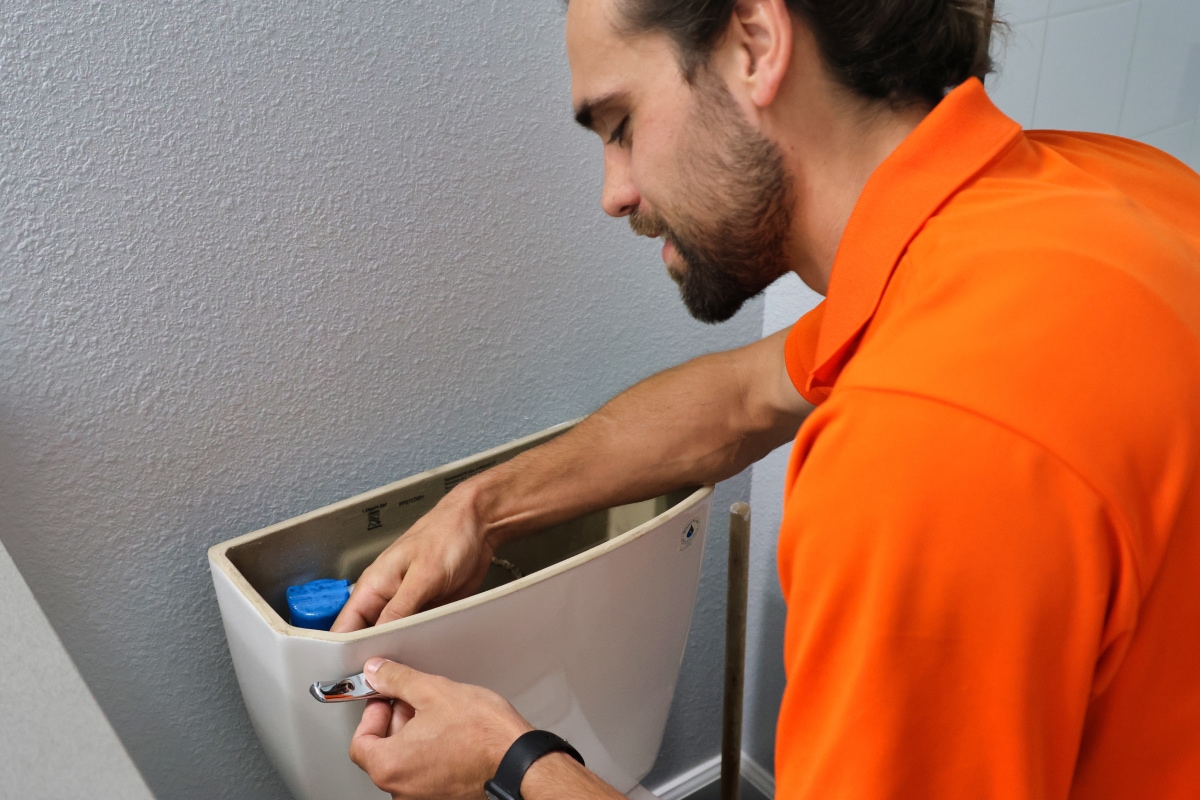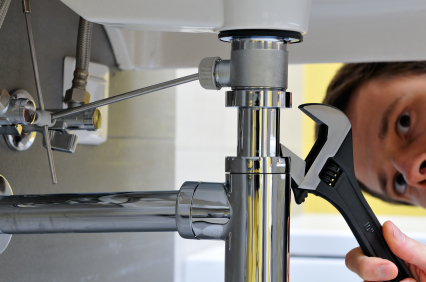Quick Fixes for Plumbing Emergencies: What to Do Until Help Arrives
Quick Fixes for Plumbing Emergencies: What to Do Until Help Arrives
Blog Article
Everybody has their own perception involving Expert Tips for Emergency Plumbing Repairs.

Pipes emergencies can strike at any moment, creating stress and potential damage to your home. Whether it's a ruptured pipeline, a blocked drainpipe, or a dripping faucet, understanding just how to take care of the situation up until an expert plumbing professional gets here can conserve you from more complications. This article offers crucial emergency plumbing suggestions to aid you minimize damage and restore control throughout a pipes situation.
Turn Off the Supply Of Water
The primary step in any kind of pipes emergency situation is to shut off the supply of water. For localized problems, such as a dripping tap or commode, switch off the valve near the fixture. In the case of a major leak or burst pipe, find your home's primary water shut-off shutoff and transform it off quickly. Recognizing the area of these shutoffs beforehand can save valuable time throughout an emergency situation.
Shut down Your Hot Water Heater
In particular emergency situations, such as a ruptured pipeline, it's smart to turn off your water heater. This avoids overheating or damages to the device when water quits moving. Switch off the power supply to the water heater (electric or gas) and let it cool down to avoid possible threats.
Briefly Stop a Burst Pipeline
A burst pipe can bring about considerable water damage in mins. To alleviate the issue:
Call an expert plumber immediately to attend to the issue permanently.
Have an Emergency Situation Pipes Set
Prepare a basic pipes emergency kit to take care of small problems effectively. Your package must include:
Having these tools handy can make a considerable distinction in your capability to take care of emergency situations.
Unclog Drains Securely.
A blocked drainpipe can be a discouraging and messy concern. Here's just how to tackle it:.
If these techniques do not function, stay clear of making use of excessive force, as it might aggravate the clog.
Manage Overflowing Toilets.
An overflowing bathroom can create prompt chaos. Here's what you should do:.
Address Little Leaks with Temporary Fixes.
Small leakages can rapidly come to be considerable troubles if left unchecked. Utilize these short-lived fixes up until expert aid arrives:.
While these fixes aren't permanent, they can assist lessen water loss and damages.
Take Care Of Frozen Pipes Thoroughly.
In chillier environments, icy pipelines are an usual emergency situation. If you suspect a frozen pipeline:.
Know When to Call a Specialist.
While quick fixes can aid momentarily, particular pipes problems need instant expert interest. Call a plumbing professional if:.
Quickly contacting a specialist makes sure the problem is fixed correctly and prevents additional problems.
Avoid Further Damages.
Taking fast action to minimize damages can conserve you time and money in the long run. Below's just how:.
Conclusion.
Pipes emergencies can be overwhelming, yet with the best expertise and tools, you can take care of the situation successfully till help gets here. By turning off the supply of water, attending to tiny leaks, and utilizing short-lived fixes, you can lessen damage and keep your home safe. Keep in mind, these tips are short-term options; constantly speak with a certified plumbing professional to deal with the source of the trouble. Preparation and quick reasoning are your best allies in any type of pipes emergency.
8 Helpful Tips for Managing Plumbing Emergencies at Home
If your plumbing system hasn’t failed once, wait for it because almost everyone has a story to tell. Sometimes, it could be simple emergencies such as a leaking pipe, a blocked cistern, or even a big burst pipe. In situations like this, you need to have some handy tips to save you some money and from possible damages.
Take care of minor issues early.
Sometimes, you could have avoided an emergency by taking proactive measures while it was still early. Some major plumbing emergencies can be a result of an ignored minor issue. We recommend that you have items like plumbing tapes and other related items. A plumbing tape can allow you to manage minor leaks before the plumber arrives.
Cut off the water supply.
This tip is essential in almost any type of leakage problem. For problems like minor leakages in the toilet or kitchen, turn off the supply that takes water to the affected pipes. If the leakage is a major pipe, you must shut off the supply valve to the entire building. This will help you avoid flooding your home and neighbors if you share a flat.
Know your plumbing system
Folks typically move into a new apartment without understanding the water supply around the building. This can prove disastrous if a water emergency arises and the plumber is far away. The previous tip will prove useless if you don’t practice this one. More importantly, know where your water shut-off valve is located – you’ll need that knowledge to prevent potential home floods.
Have some common handy tools
There are lots of plumbing emergencies that you can handle without hiring a plumber. That’s why you must keep some tools available always. Some tools that you can use to fix simple plumbing emergencies easily include plumbing tapes, screwdrivers, thread seal tapes, plungers, pliers, tape measures, and rubber gloves.
Insulate your pipes from cold
You’ll save yourself from many plumbing expenses if you protect your water pipes from the cold. This is because of the harmful effects that cold weather can have on your pipes. During winter, your pipes can burst from being overly expected to freezing temperatures. So, make sure insulators are there to keep the pipes working correctly.
Avoid practices that will clog your toilet.
Many people indulge in practices that can damage the plumbing system of the entire building. One of these is when they use their toilet to dispose-off garbage. They flush all kinds of things, such as paper towels, bandages, hairs, female sanitary products, etc., down the toilet. This will block your toilet in the long run, incurring unnecessary expenditures. Dump such waste in the trash instead.
Check your dials regularly.
Sometimes, there could be leakages in your home without noticing them in time. So, constantly monitor your water meter dial. If the dial is reading when there is nobody using water, this is an indicator that there is leaking. Check for leaks immediately. Call a plumber as soon as possible if you can’t find any.
https://www.constructionplacements.com/8-helpful-tips-for-managing-plumbing-emergencies-at-home/

Do you like reading about What to Do While Waiting for an Emergency Plumber? Put a review directly below. We will be pleased to listen to your suggestions about this blog entry. In hopes that you come back again before long. Please take the opportunity to promote this blog post if you enjoyed reading it. I thank you for your readership.
Click Here Report this page